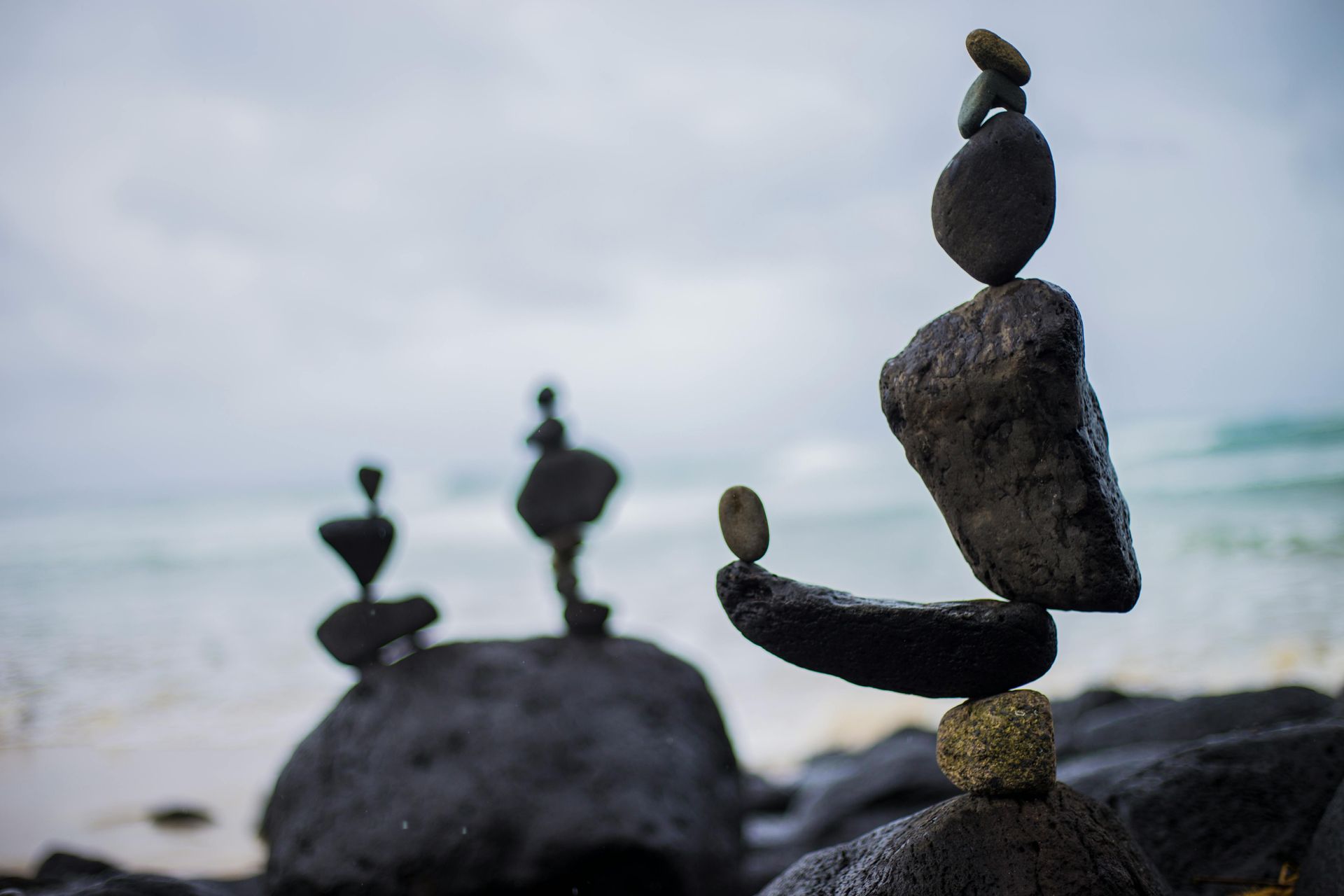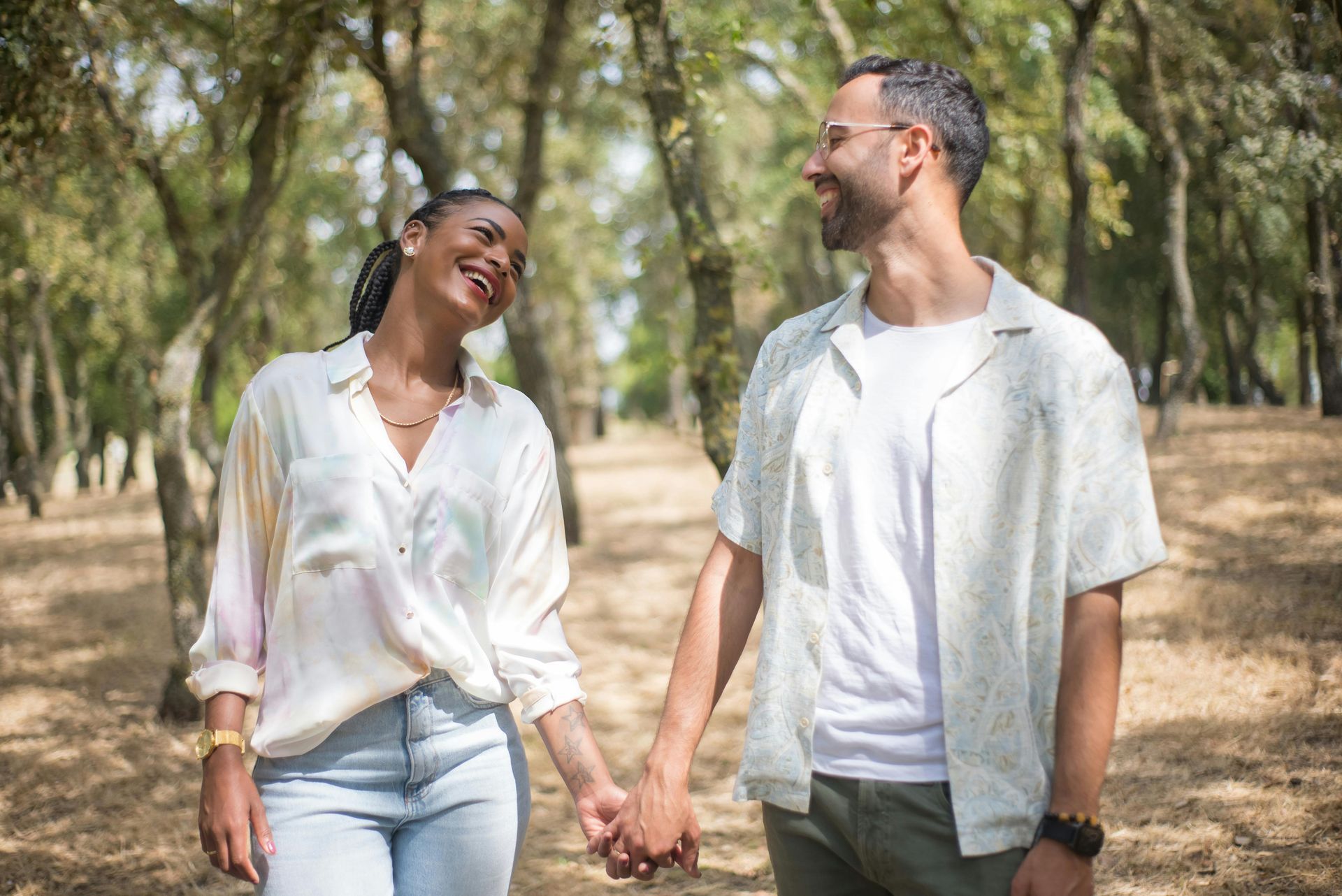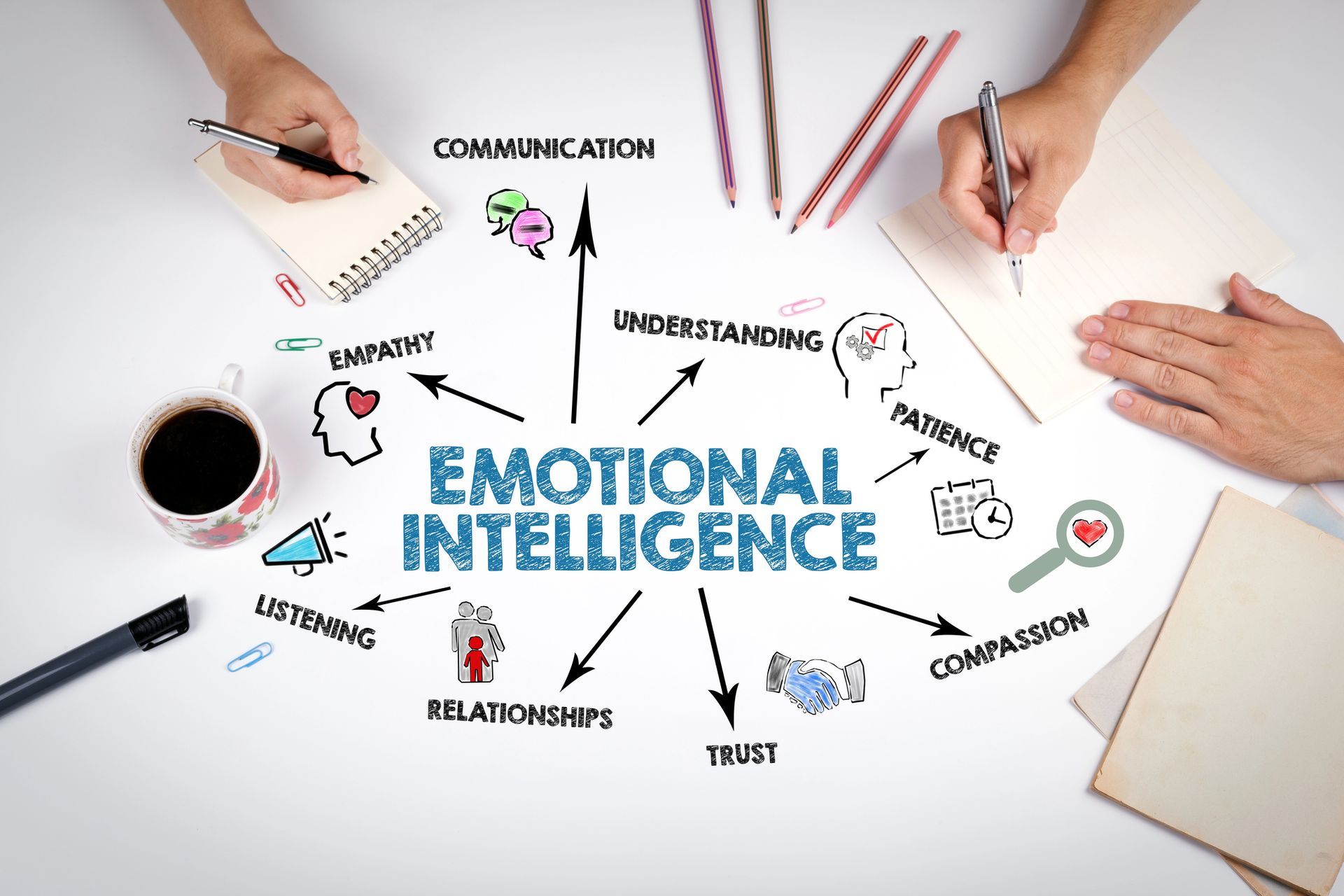Why learning to forgive is important for couples to get along well

When we are hurt or feel betrayed, often the last thing we want to think about is forgiving the person who made us feel this way. Especially when it is someone who you love like a partner or spouse, the hurt can feel exponentially deeper.
The process of forgiveness isn’t easy, but understanding why it's important may save you from furthering the harm that’s already been inflicted and help you let go of the angry feelings, move you forward and heal.
What is Forgiveness in a Relationship?
Forgiveness can come in many forms, but the basic conception of the term is the active choice to let go of feelings of anger, hurt and resentment. How we justify this choice can manifest in numerous ways.
You might accept that holding onto the past is hurting you, recognize that people aren’t perfect, that is part of human nature to make mistakes, or decide that compassion is how you move forward. Whatever the rationale, it can completely change how you view the event for the better.
Why Bother?
Many people view forgiveness as letting the person who harmed us off the hook. However, the practice of forgiveness has more to do with you, than it does for them. Especially in a relationship, while forgiveness can make your partner feel better, being a forgiving person may benefit you and your relationship the most.
Here are some reasons saying why yes to forgiveness is a good idea:
Forgiveness Helps You Heal
It can be hard to accept that forgiveness will help us heal when we’ve been hurt, but without it, we may prolong the damage caused by holding on to negative feelings. With forgiveness, you have the chance to release the anger, frustration and pain that prevents you from finding peace. Making this choice allows you to take control of your life, your own happiness and the power this emotional wound has on you.
An important thing to note is that forgiveness doesn’t mean forgetting or condoning bad behaviour. It involves you allowing yourself to be vulnerable in order to grow from lessons learned and prioritize self-love.
Forgiveness Can Improve Other Relationships
“Hurt people, hurt people.” Anger and resentment are like wildfire if you continue to feed them. Holding on to anger toward someone who hurt you doesn’t only impact the relationship with that person and increases your stress level - it can overflow into your other relationships.
You may be angry at a coworker but take it out on your partner when you come home, or you may be angry with your spouse and have a hard time enjoying the company of your friends because it's clouding your mind. With forgiveness, you refuse to let these negative emotions control your day and how you interact with others.
Forgiveness Helps Reduce Stress
Harbouring anger and resentment can not only negatively affect your mental health, but also your physical health. Research has shown psychological stress is a well-known risk factor for poor health, but suggested remedies like forgiveness may help mitigate these effects.
Less
stress can translate to positive health outcomes, such as:
- lower blood pressure
- reduced anxiety
- Improved cholesterol levels
- better sleep
- improved self-esteem
In the long run, forgiveness can be the most beneficial avenue for your own healing, health and peace of mind.
Forgiveness Can Help You Reconcile
Forgiveness doesn’t always mean your relationship will be the same than before the harm was inflicted. You may forgive, but choose not to resume contact or pick a relationship back up again, and that’s okay. Forgiveness can be the closure you need, whether they are in your life or not.
What if you want them in your life? When conflicts or betrayal of trust become too heavy, seeking a third party or
couples therapist may be the best course of action. Having a neutral party to handle these hard discussions can help partners forgive and move away from pointing fingers.
Forgiveness can Break the Cycle of Winners and Losers
In the heat of the moment, we can get caught up in casting blame or reacting to how much we are hurt in the moment. However, when we are more level-headed, forgiveness can help align our thinking and what options we have to get back into a healthy relationship, if that is possible.
Holding back on forgiveness because we feel our partner doesn’t deserve it or accepting an apology to “take the higher moral ground,” can sour your ability to grow deeper, more
meaningful relationships. Ultimately, counting scores can prevent you from realizing that being a couple means you’re on the same team that needs cooperation and collaboration to succeed.
What if You Are the One Seeking Forgiveness?
You can ask for forgiveness but you might not always get it. The best course of action is to make it known you acknowledge your actions and how it’s affected your partner by prioritizing their feelings. Controlling your response, and genuinely being open to discuss how you can repair your relationship with your partner can let them know how remorseful you are while giving them the time and space to decide how they want to proceed.
We all make mistakes and understanding that we might not always get it right can help you understand yourself and your partner better. So when we do mess up, extend yourself the kindness to forgive your mistakes and theirs.
Tips on Practicing Forgiveness
Understanding the benefits of forgiveness is one thing, but applying the practice is another. Some strategies that can help you develop a forgiving attitude include:
- Talking through your feelings. Better understanding yourself and your partner through open communication are important steps to letting go and moving on.
- Find the bright side. Trying to find the silver lining or appreciating that the best outcome of a situation is the lessons learned can help you cope with the emotional pain.
- Forgive the smaller things. Moving past the anger or resentment can be hard so taking one step at a time can help when you are ready to forgive the bigger things.
- Forgive yourself. Acknowledging that sometimes we have a part to play in this harm or that we make mistakes can speed up the healing process for everyone.
- Sharing your feelings with a third party. Seeking couples therapy or marriage counselling doesn't mean your relationship is doomed, but just needs some guidance to find each other again.
Learning how to forgive is a skill that needs practice. With the right mindset, positive attitude, willingness and help, you can move past emotional pain and get back to harmony, with yourself or in your relationships.
Helping You Navigate Forgiveness with Love of Attraction
Forgiveness is not something we can learn overnight, it is something that we work towards and seek for ourselves. However, having the proper guidance to find it can help make your relationship with yourself or your partner more meaningful.
Our
individual’s and
couple’s counseling sessions with registered psychotherapist Kathleen Maiman can help you implement the right strategies to find forgiveness and healing to restore self-love and healthy relationships.
Learn more about our broad range of couples therapy and counseling services today.
Register for our Newsletter and receive a Free Love Chat Package
- The 5 Steps to a Better Relationship
- Ongoing Monthly Relationship Tips
- If you want more love in your life, our relationship Love Chat Package is an easy cost-free first step.


















